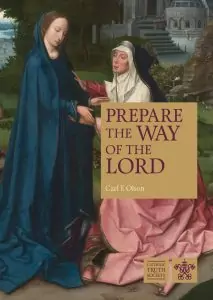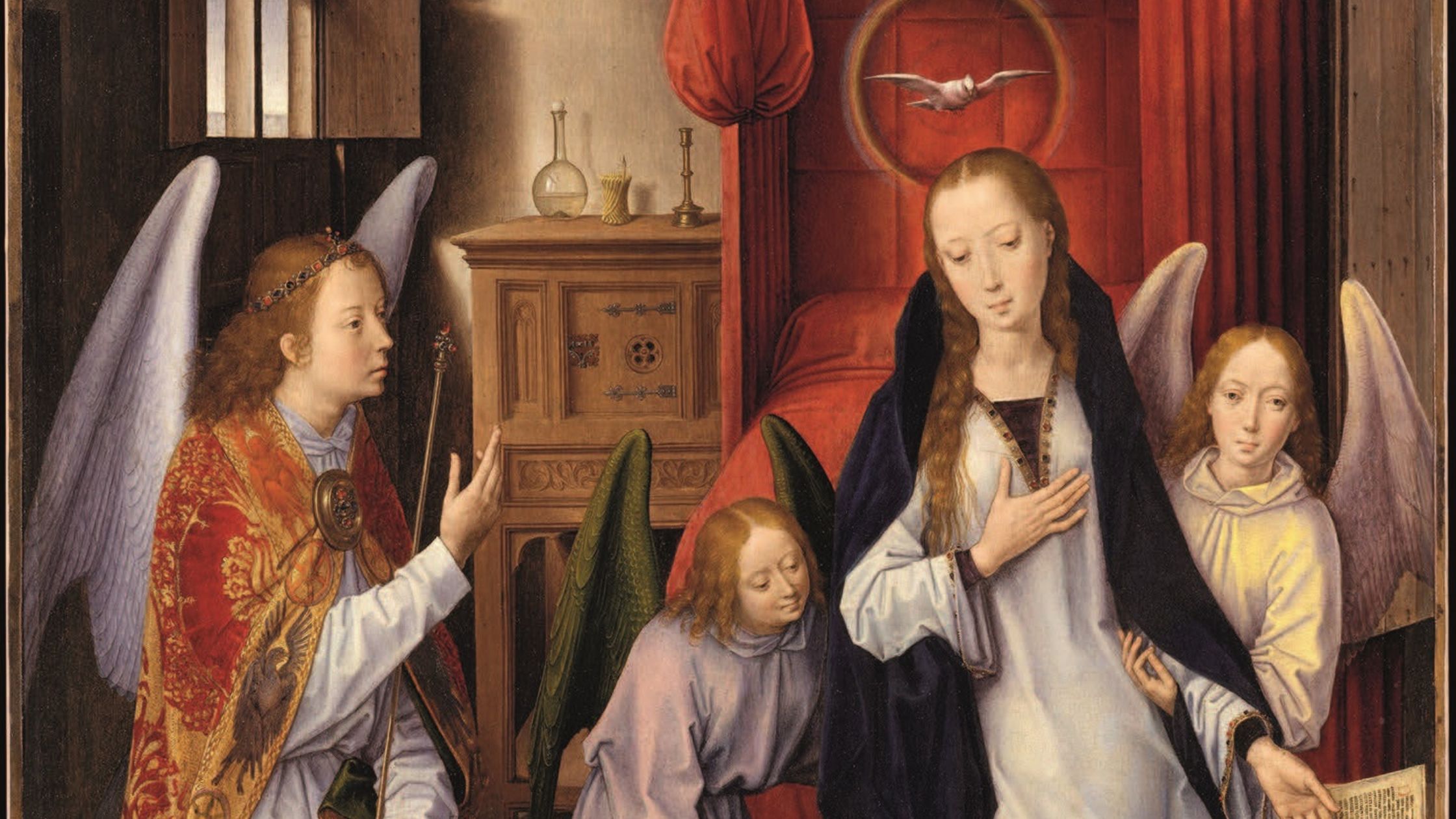This reflection is taken from our book Prepare the Way of the Lord, which contains reflections on the Scripture of Advent, and line-by-line meditations on the Hail Mary. Order now.
Readings: Zp 3:14-18a; Is 12:2-3, 4, 5-6; Ph 4:4-7; Lk 3:10-18
“Great joy has in it the sense of immortality”.
(G.K. Chesterton)
Joy, like love, hope and goodness, cannot be adequately or convincingly explained through material processes or properties. Joy is a gift pointing to a transcendent giver. And that giver is the Lord, the giver of both natural and supernatural life. Gaudete Sunday is a day of joy and rejoicing (the Latin word for “rejoice” is gaudere), and the readings reflect this theme. The reading from the prophet Zephaniah contains an exultant call for Israel to shout and sing for joy. Why? Because the Lord had staved off judgement, rebuffed Israel’s enemies, and stood as King and Saviour in the midst of the chosen people.
The responsorial psalm, from Isaiah, echoes the same: “Cry out with joy and gladness, for among you is the great and Holy One of Israel.” And the Epistle, from St Paul’s letter to the Philippians, has a hymnic, even rhapsodic, quality: “Rejoice in the Lord always. I shall say it again: rejoice!” The reason, again, is due to the immediacy of God’s intimate, life-giving presence: “The Lord is near.”
The Gospel reading does not directly refer to joy, but instead anticipates and points, through the words of John the Baptist, towards the source of joy. The anticipation has two different but connected qualities. The first is external and focuses on the natural moral virtues; it is drawn out through the question asked by the crowds, the tax collectors and the soldiers: “What should we do?” John’s response, in essence, is that they should act justly towards their neighbours and those in their communities.
Treating others with respect and acting with justice are virtuous actions. However, they are lacking to the degree that they are solely human. The need for something more is hinted at in the raised expectations of the people, who “were asking in their hearts whether John might be the Christ”. Having recognised the need for natural goodness, they now hunger for supernatural goodness – that is, for the Christ. Having tasted the joy that comes from seeking the good for others, they wish to receive the joy that comes from the good given by God (cf. CCC 1804).
The distinction and relationship between the human and supernatural virtues is highlighted further in comparing the baptism of John to the baptism of the Messiah. The first is an external sign, a washing of water, symbolising the need for purity and the desire for holiness. The second is an efficacious sign, a sacrament, which accomplishes what it signifies. “By the action of Christ and the power of the Holy Spirit”, explains the Catechism, the sacraments “make present efficaciously the grace that they signify” (CCC 1084).
What about the fire mentioned by John? While water symbolises birth and life, “fire symbolises the transforming energy of the Holy Spirit’s actions” (CCC 696). Both water and fire can destroy, but both are also necessary for life. And in the case of baptism, this life is supernatural, divine, Trinitarian. In baptism, original sin is destroyed, the chasm between God and man is closed, and the soul is ignited with divine fire. Joined in the death of the Son (cf. Rm 6), those who are baptised are transformed by the Holy Spirit into sons of God, made anew for the glory of the Father, and prepared for life in the new heavens and new earth.
Here, then, is the source and heart of our Advent joy. The season anticipates the celebration of Christ’s birth, but it also illuminates the purpose of the Incarnation: to remove judgement, to destroy sin and death, and to grant intimate, life-giving communion with God. “All seek joy,” said St John Chrysostom, “but it is not found on earth.” It is found instead in the Son, who comes from heaven to earth – to the crowds, tax collectors, soldiers, and us. Great joy flows from immortality. Rejoice!
Prayerfully discover the meaning of Christmas with Prepare the Way of the Lord
 Prayerfully discover the meaning of Christmas with this collection of meditations on the Scriptures and prayers of the Advent season. Reflecting upon the Sunday Gospels, Carl E Olson highlights their depth and helps us to apply the Scriptures to our own lives.
Prayerfully discover the meaning of Christmas with this collection of meditations on the Scriptures and prayers of the Advent season. Reflecting upon the Sunday Gospels, Carl E Olson highlights their depth and helps us to apply the Scriptures to our own lives.
Olson continues this Advent meditation by offering a line-by-line contemplation on the Hail Mary, illuminating the significance of each word so as to deepen our experience of this integral prayer. By praying the Hail Mary mindfully, we discover how to walk through Advent with Mary, ready to welcome her Son at Christmas.
